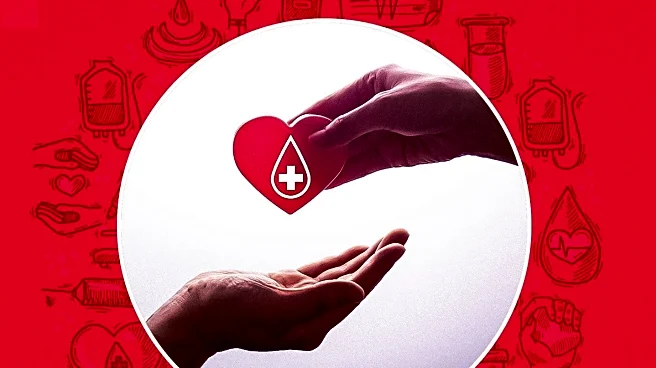What is the story about?
What's Happening?
RedC Biotech, an Israeli company, has developed a groundbreaking technology to produce universal red blood cells that can be transfused to all patients, eliminating the need for blood donors. This innovation involves cultivating blood cells from stem cells in large bioreactors, capable of producing hundreds of transfusion-ready units simultaneously. The process begins with stem cells that can divide and expand indefinitely under the right conditions, stored at temperatures below minus 150 degrees Celsius. When thawed and cultivated, each cell grows into millions, potentially saving approximately 2 million lives annually worldwide from blood loss.
Why It's Important?
The development of universal red blood cells by RedC Biotech could revolutionize the healthcare industry by addressing blood shortages that lead to millions of deaths annually. In advanced countries, transient shortages occur, while less advanced regions face severe shortages, resulting in fatalities due to insufficient or substandard blood supplies. This technology promises to make blood available everywhere, significantly reducing mortality rates associated with blood loss. The ability to produce blood cells industrially in large bioreactors could ensure a consistent supply, improving healthcare outcomes globally.
What's Next?
RedC Biotech is working to scale up its operations, with plans to progress toward preclinical and clinical trials and eventually full-scale manufacturing. The company envisions factories worldwide producing universal red blood cells under local regulations, aiming to make this life-saving technology accessible globally. As the technology advances, it could lead to significant changes in blood transfusion practices and policies, potentially garnering interest and investment from healthcare providers and governments seeking to improve public health infrastructure.
Beyond the Headlines
The ethical implications of producing universal blood cells are profound, as it could democratize access to life-saving treatments, particularly in regions with limited healthcare resources. Additionally, this innovation may prompt discussions on the regulation and standardization of biotechnological advancements in healthcare, ensuring safety and efficacy while addressing global health disparities.

















